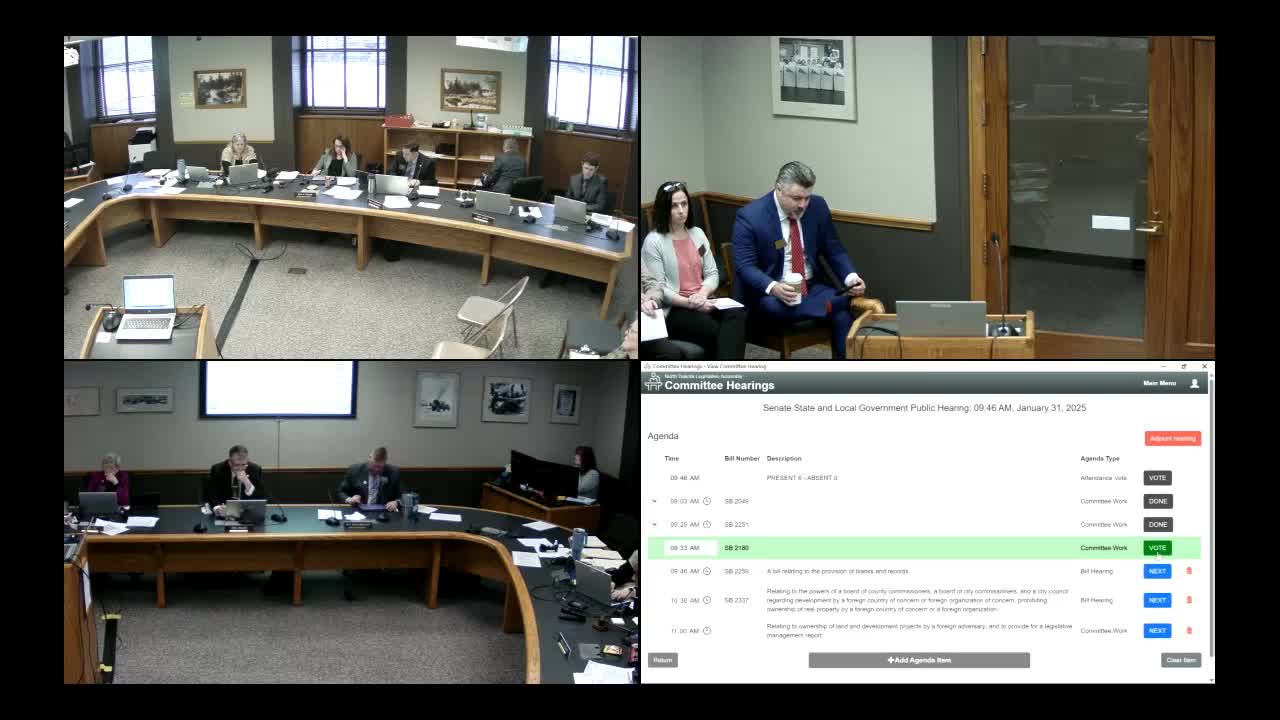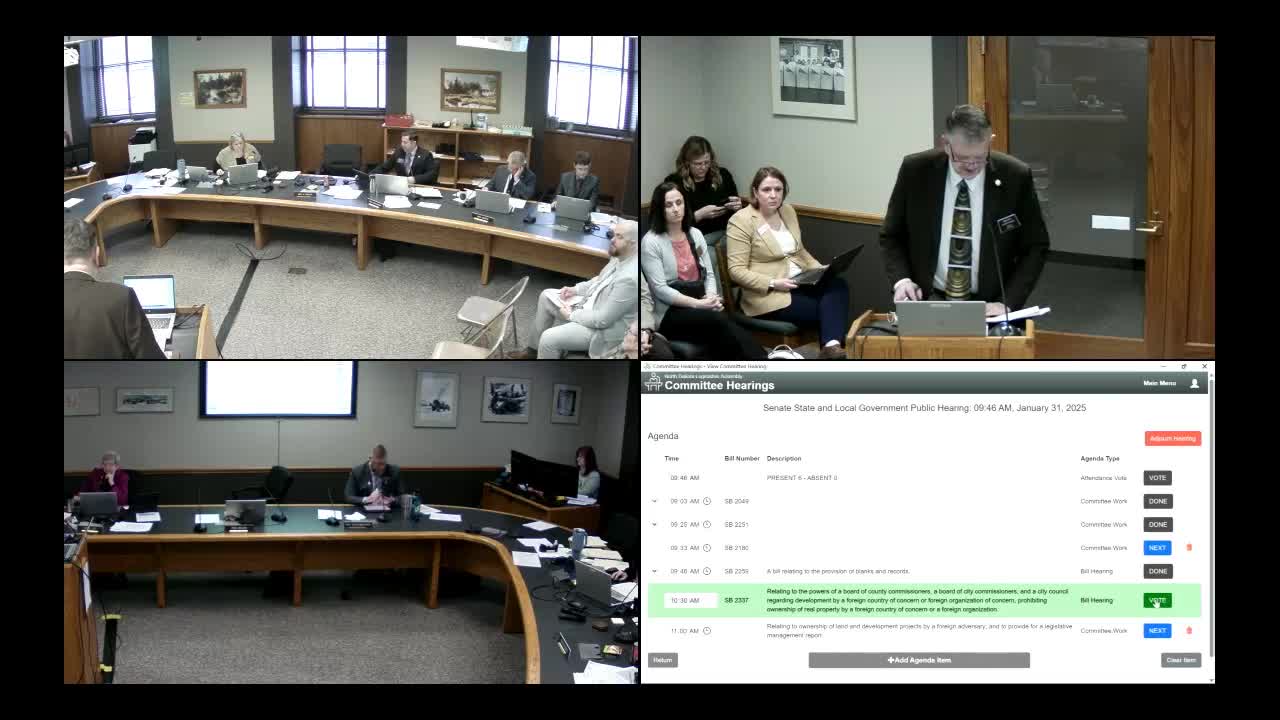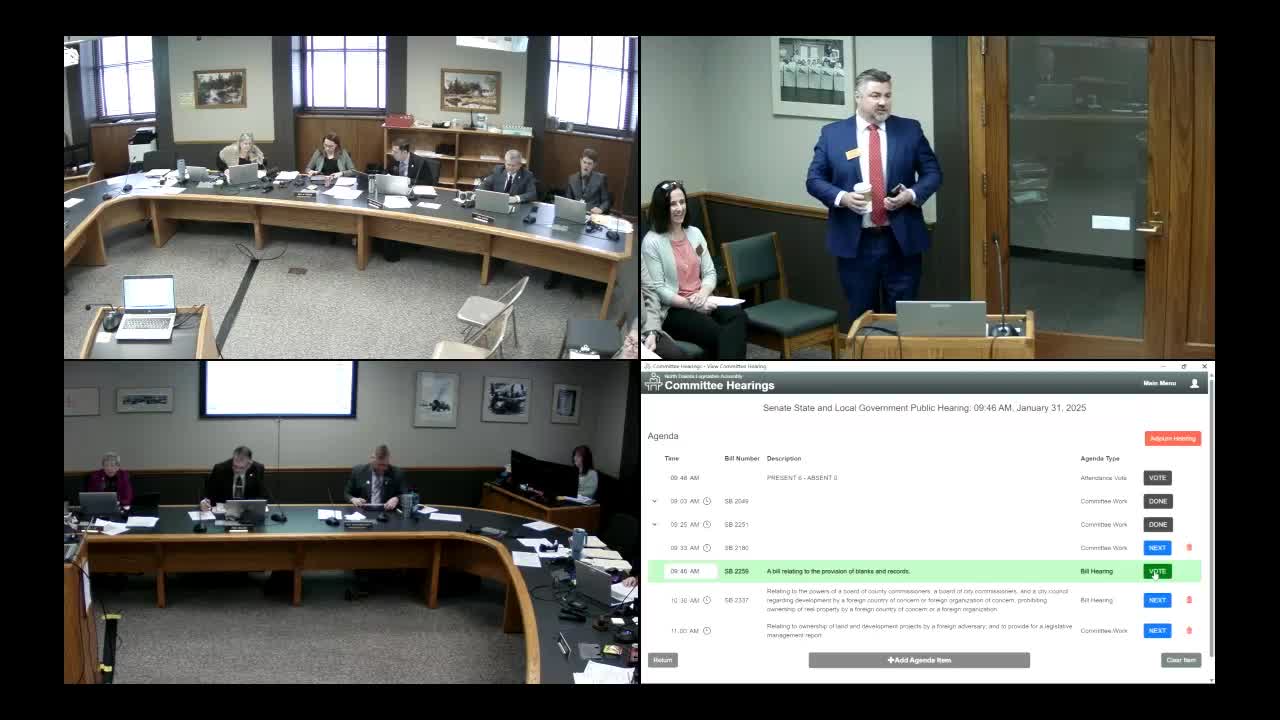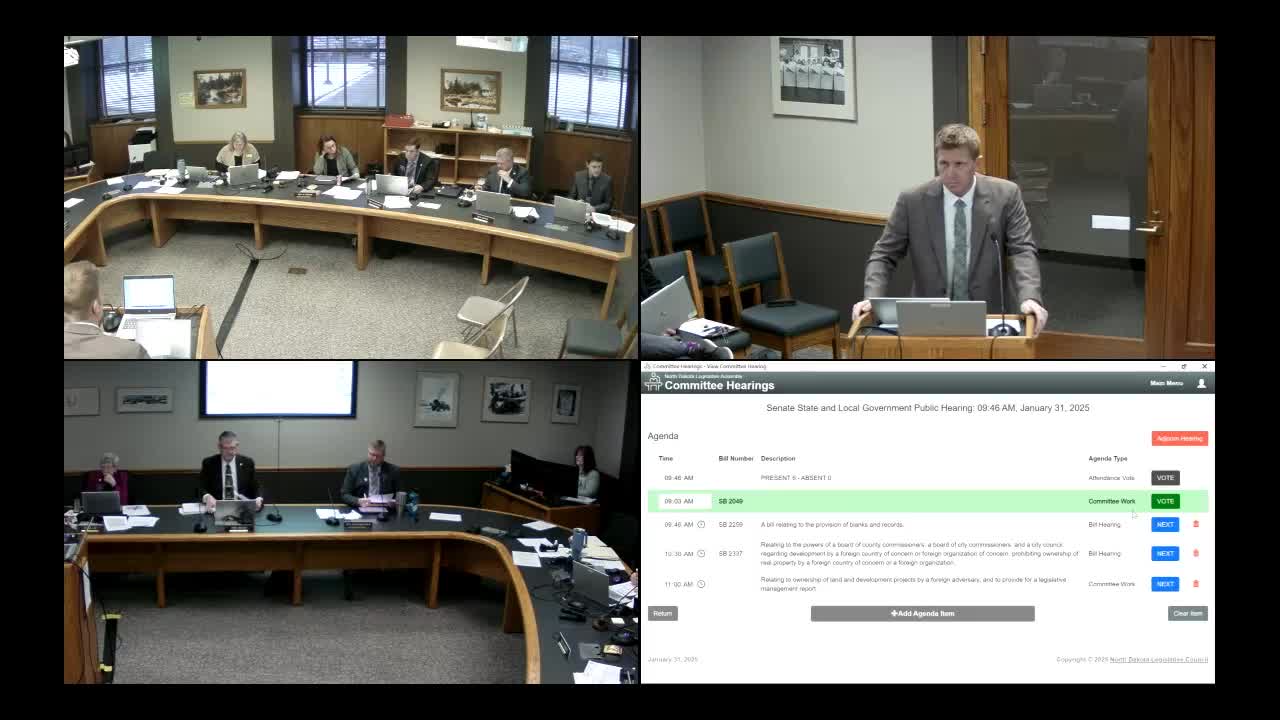Article not found
This article is no longer available. But don't worry—we've gathered other articles that discuss the same topic.

Committee debates a lighter-touch approach to public-comment rules for local governments

Committee hears competing views on bills to curb foreign ownership; constitutional, trade concerns raised

Committee backs repeal of century-code mandate that county officers must supply printed blanks

